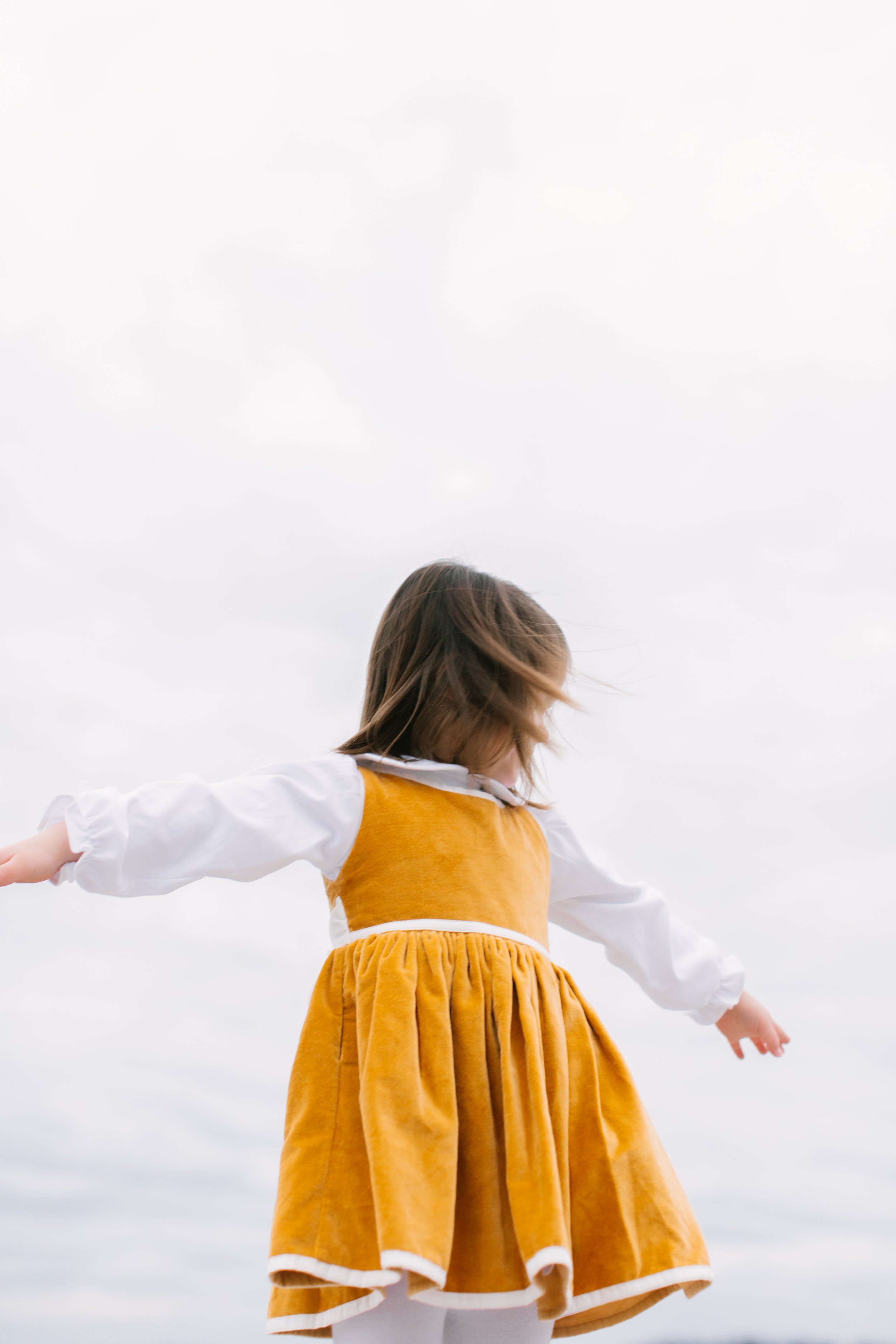Kids Social Media Safety Changes You Can Make Today
Now that I know the risks of posting photos of my children online, what should I do?
If you read my blog on the potential risks of posting photos of your kids online or have done your own outside research on the topic, you may be wondering how you can get started in posting more safely online. I am not perfect & I don’t have this all figured out, but I do hope that this blog will be a helpful resource for you on some practical ways you can get started, today.
3 Questions to Ask Before Posting a Photo of Your Child
Let’s kick off the blog with 3 simple questions to ask yourself recommended by Stacey Steinberg, author of Growing Up Shared:
Is it dangerous?
Is it embarrassing?
Is it helpful? (to me, my child, my family, my community)
How to Share Photos of Your Kids Online More Safely
- Ideas For Private Accounts -
1. Consider making your social media account private.
Private accounts are definitely a safer option than public accounts if you are going to be sharing photos of your kids online because you can decide who can & cannot follow you. This also keeps your photos from coming up on Explore pages or in public search results.
I currently use a public account because I use my social media accounts for business & education purposes. So, I have made some of the other changes mentioned later in this blog for public accounts.
2. Review & edit who follows you.
When I recently reviewed my friend list on Facebook I was somewhat surprised to find that I couldn’t remember who many of the people were. Surely I wouldn’t have accepted a friend request from someone I didn’t know, right? But then again, I went to a large university and someone was always at least a friend-of-a-friend. Over time I accumulated thousands of “friends”, most of which I barely know.
Consider the type of content you’ll be sharing on your account & really consider who you think should be privied to that information. Should the guy from your chemistry class in high school be able to see photos of your kids? How well did you know that girl in college? If you wouldn’t want any of the people who follow you to have possession of a physical photo of your kids, than they probably shouldn’t have digital access to photos of your kids either.
3. Have a conversation with family & friends about your preferences.
You likely have people in your life who love to share photos of your kids - whether that be friends, family, babysitters, or even your kids’ school - and their motivations for sharing are probably because they love your child & are proud of them, just like you are! However, if it’s important to you that others change how they share about your children on social media, you should feel empowered in your authority to make that call.
This can be a delicate conversation because we don’t want anyone to feel shame over their desire to share. Remember, similar to how you once weren’t aware of the risks that you are aware of now, they might not be either. Share kindly with them about what you’ve learned & why that has influenced how you want your child to be shared on social media.
Here is a great resource on how another mom had a conversation like this with her family.
4. Avoid sharing photos of your child that could make them vulnerable.
Avoid sharing bath time or potty time photos that could make them vulnerable to both predatory threats or embarrassment. Consider things that might now or one day make them a target of bullying from other kids.
5. If your child is old enough, ask for their permission before you post a photo of them online.
This helps teach children that they have a say in what is published about them online and that their opinion does matter. We want them to exercise this right when it comes to their peers and others’ posting about them on social media & it should start with us.
- Ideas For Public Accounts -
I’ve chosen to keep my social media accounts public for business & education purposes so this in turn has greatly changed how & what I share about my kids in those spaces. A good general rule of thumb when it comes to public accounts is this - would you share these photos or this information with random strangers you met at the park or at the mall? If the answer is no, it definitely isn’t something you should share online where anyone, all over the world could access it.
1. Do not share personal identifying information.
Information such as home address, school location, full name and birth date, hospital or pediatrician, & can create both safety issues now and identity theft issues for them in the future. This is also information that hackers can use to get into your accounts.
2. Choose photos that don’t show your child’s face.
One option for sharing the joy of your child without revealing their identity is to share creative images that don’t share their face. This keeps their online presence anonymous, while still allowing you to share what matters most to you. It allows them to be a part of your story without sharing their story for them. Some creative ideas might be photos taken of them in motion, a photo of their hand in yours, or a photo of the back of their head while they’re running. I shared some creative posing ideas on this blog to get you started.
3. Only share photos of your children in group settings or from far away.
Photos of kids in groups or taken from far away are less likely to be manipulated or edited in Photoshop for ill purposes like I mentioned in my blog on the potential risks of sharing photos of your kids online.
4. Do not use specific geo-tagging.
Avoid sharing the specific locations of where you go and spend time with your kids. Even if you are no longer currently there when you post the photo, predators could use this information to figure out your patterns or determine where you live, where your child goes to school, what parks you like to attend, etc.
5. Avoid hashtags that could put your kids at risk.
Hashtags on public accounts are used as ways to search for other similar content. It’s a bummer to think this way, but it is eye-opening to consider how a predator looking for a certain type of person or image might use hashtags negatively. Things like # babybathtime or # pottytraining are more obvious threats, but even hashtags as simple as # twoyearsold or # babygirl can make it easier for predators to find your child online.
Don’t Be Afraid to Take a Break from Social Media
If you’re feeling overwhelmed by all the changes you want to make to how you share about your kids online, taking a complete break from social media is one of the best ways to give yourself the space & time to reevaluate what changes you want to make moving forward and process all of this with a clear mind.
I actually host month-long social media detoxes where I send an email to you each morning with an encouragement, a question, & a practice. If you want to get in on my next social media detox, you can hop on the waiting list here.
Be encouraged that if you are thinking about these hard things, you’re already taking a step in a positive direction. You’re here because you care about the well-being of your children & that is a very good thing. 😊


